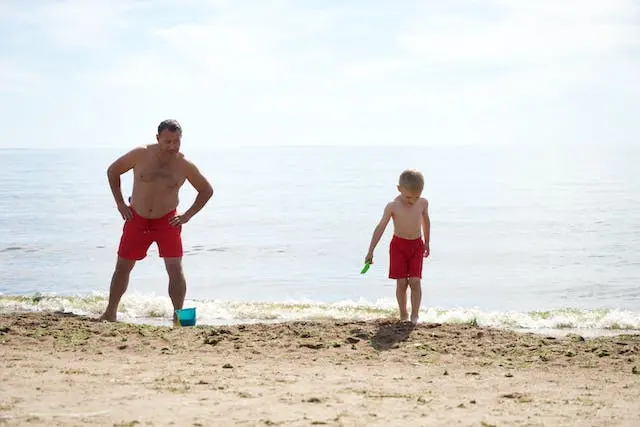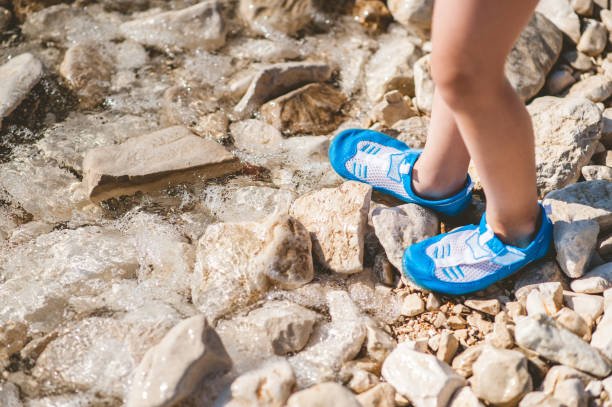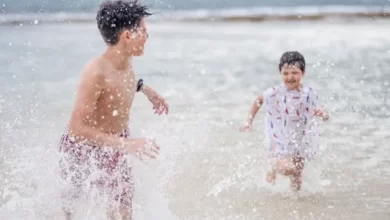10 First Aid Essentials: Building a Beach-Ready First Aid Kit for Your Baby’s safety
Are you planning a beach trip with your child? Safety comes first! In this comprehensive guide, we’ll lead you through constructing a beach-ready first aid pack suited to your child’s specific needs. We’ve got you covered for a pleasant and fun day at the beach, from needs to specialist considerations.
Table of Contents
Why is a Beach-Ready first-aid Kit Crucial for Babies?
Babies, with their tender skin and developing immune systems, require special attention, especially in outdoor settings like the beach. A beach-ready first aid kit acts as a safety net, allowing you to address any unexpected situations promptly and effectively, ensuring your baby’s well-being.
What Are the Fundamental Items Every Baby’s Beach First Aid Kit Should Contain?

Your baby’s beach first aid kit should be a comprehensive arsenal, including:
- Diapers and wipes: Ensure an ample supply for unexpected diaper changes.
- Baby-safe sunscreen: Choose a high-SPF, water-resistant sunscreen specifically formulated for infants.
- Diaper rash cream: Soothe and prevent diaper rash caused by moisture and sand.
- Baby-friendly insect repellent: Protect your baby from pesky beach bugs.
- Baby pain relievers: Include age-appropriate pain relievers in cases of discomfort or fever.
- Sterile gauze and bandages: Be prepared for minor cuts and abrasions.
- Baby-safe hand sanitiser: Maintain cleanliness, especially during outdoor activities.
- Baby-safe antiseptic wipes: Cleanse minor wounds and skin irritations gently.
How Do I Select the Right Sunscreen for My Baby?
Choosing the right sunscreen involves factors like SPF, water resistance, and sensitivity. Opt for a sunscreen specifically designed for babies, ensuring it’s free from harsh chemicals that might irritate their delicate skin. Perform a patch test before application to rule out any adverse reactions.
Are there special considerations for baby first aid at the beach?

Indeed, special considerations include:
- Extra diapers and wipes: Account for the sandy environment and the need for frequent changes.
- Baby-friendly insect repellents: Shield your baby from potential bug bites.
- A small blanket for shade: Create a comfortable and shaded spot for your baby’s rest.
- Storing the first aid kit in a cool, shaded area: Preserve the integrity of medications and sensitive items.
How Can I Ensure the First Aid Kit is Baby-Friendly?
Ensure all items in the kit are suitable for babies, from medications to wipes. Opt for hypoallergenic options and consider your baby’s preferences to make the experience as comforting as possible.
What Should I Do in Case of a Diaper Rash Emergency?
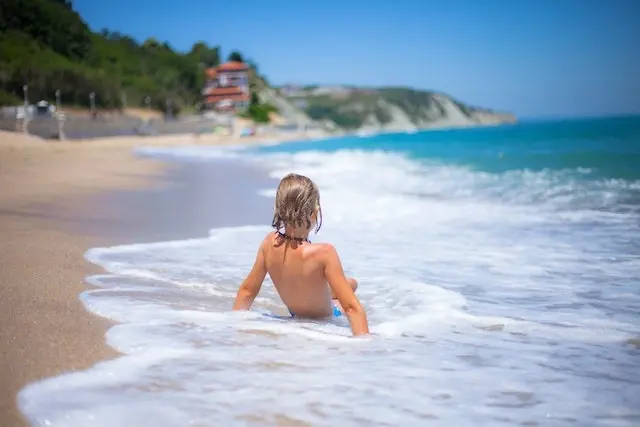
In the event of a diaper rash, swift action is key. Apply diaper rash cream liberally and change diapers frequently. Opt for fragrance-free wipes to prevent further irritation, and if the rash persists, consult your paediatrician for guidance.
How Can I Make the First Aid Kit Easily Accessible on the Beach?
Accessibility is crucial on the beach. Choose a waterproof and easily identifiable bag, and consider a hands-free option like a fanny pack for easy mobility. Organize items logically, placing frequently used items at the top for quick access.
What Safety Measures Should I Implement During Baby’s First Beach Outing?
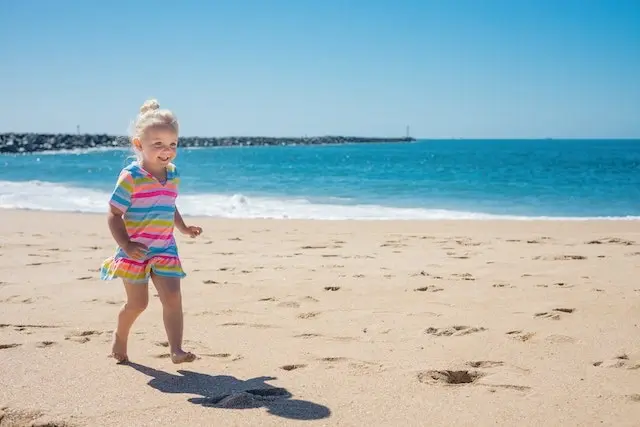
In addition to a well-equipped first aid kit, adhere to these safety measures:
- Keep your baby well-hydrated: Provide water or formula to prevent dehydration in the sun.
- Utilize a baby beach tent: Create additional shade during peak sun hours.
- Dress your baby in lightweight, protective clothing: Shield them from UV rays.
How Often Should I Check and Update the First Aid Kit?
Regular maintenance is crucial for a functional first aid kit. Check medication expiration dates and replenish any items that have been used. Consider updating the kit based on changes in your baby’s needs and preferences, and adjust for seasonal variations or emerging health considerations.
What Should I Do in the Case of an Allergic Reaction or Bug Bite?
Dealing with allergic reactions or bug bites during beach outings requires a proactive and informed approach. Allergic reactions can range from mild irritation to severe responses, and bug bites, while often common, can lead to discomfort. Knowing how to address these situations ensures a more comfortable experience for both parents and babies.
- Identifying Allergic Reactions:
- Common Triggers: Recognizing common triggers for allergic reactions, such as certain foods, insect stings, or contact with specific plants, is the first step.
- Symptom Awareness: Educate parents about common allergic reaction symptoms in babies, including skin redness, swelling, hives, or more severe reactions like difficulty breathing.
- Immediate Response to Allergic Reactions:
- Administering Medications: For babies with known allergies, ensure parents have prescribed medications like antihistamines or epinephrine on hand. In case of a severe allergic reaction, swift administration of these medications is crucial.
- Seeking Medical Help: Emphasize the importance of seeking immediate medical help if the baby shows signs of a severe allergic reaction.
- Addressing Bug Bites:
- Preventive Measures: Advocate for preventive measures like using baby-safe insect repellent, dressing the baby in lightweight, long-sleeved clothing, and avoiding areas with high insect activity.
- After-Bite Care: In case of bug bites, recommend using a gentle, over-the-counter hydrocortisone cream to alleviate itching. Stress the importance of not scratching, which can lead to infections.
Conclusion
A meticulously crafted beach-ready first aid kit is your ticket to a worry-free day by the sea with your baby. Preparedness ensures you can handle any situation, from minor inconveniences to unexpected emergencies, allowing you to focus on creating beautiful beach memories with your little one. Stay informed, stay safe, and cherish those sun-soaked moments!
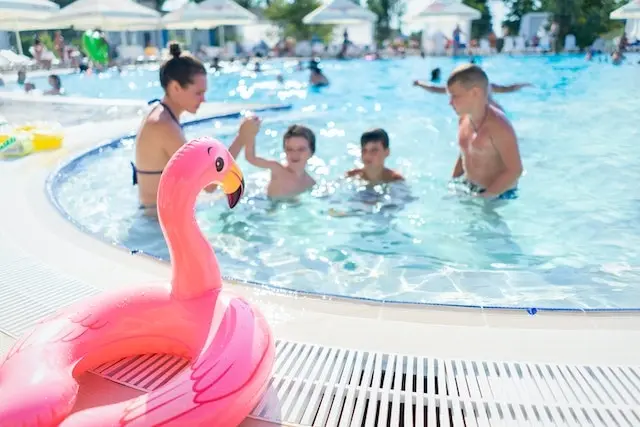
Are there any specific considerations for building a beach-ready first aid kit for infants with allergies or sensitivities?
In fact, it is critical to include suggested medications for known allergies, such as epinephrine or antihistamines, when creating a first aid box for a newborn with allergies or sensitivities. To avoid skin sensitivities, use hypoallergenic bandages and ointments. Consult your pediatrician to customize your baby’s first aid pack to his or her individual needs.
How can I ensure the items in the first aid kit remain effective and safe during beach outings?
To maintain the efficacy and safety of the first aid kit items at the beach, consider the following:
Storage in Waterproof Containers: Place items in waterproof containers or bags to prevent water damage, especially for medications and bandages.
Regular Check-ups: Periodically check the expiration dates of medications and replace any expired items promptly.
Climate Considerations: Be mindful of temperature-sensitive items, such as certain medications, and store them in a cool, shaded area to prevent overheating or damage.
